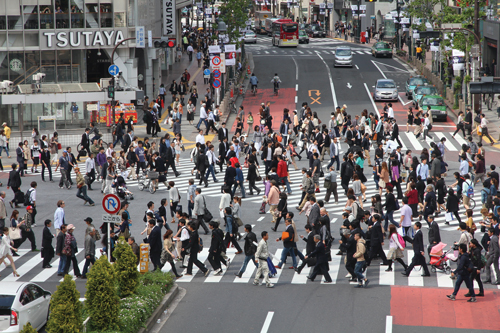Reflection - Suicides in Japan and God's gentleness
By Fr Barry Cairns
Fr Barry Cairns from New Zealand has been a Columban missionary in Japan since 1956. He offers us this reflection, written from the heart, on the tragedy of suicide and the closeness and gentleness of God.
I have just come from a very emotional funeral of a young girl of 18 who committed suicide. I write this after sharing with the distraught parents and realize that I too need to share with someone.

Both parents are indeed devastated. Their sorrow was not only the sadness and loneliness of loss, but also had a background of deep felt guilt.’
 "Could we have prevented our daughter's death? Should we have listened more and been more supportive?’
"Could we have prevented our daughter's death? Should we have listened more and been more supportive?’
I feel that these post-event questionings are in so many cases not valid. The parents are very human and did their best with someone already an adult.
I will explain how my personal spiritual life has been affected by suicides. I have come to believe more deeply in God's gentle understanding of the human heart and its frailty, and in his loving-kindness and acceptance. The word in Japanese for this attitude of God towards his frail children is ‘Itsukushimi’.
Sometimes a new and strange word helps to bring back meaning to a much used one. ‘Itsukushimi’ is used in the Japanese Bible and liturgy and is a word full of feeling, atmosphere and nuance. It is used to translate the Hebrew word ‘chesed’.
God's ‘Itsukushimi’ is a combination of gentleness, understanding, love, mercy, compassion, warmth and that wonderful ability to feel with a person. For me ‘Itsukushimi’ is the principle trait of Abba, my Father-God, to each of us, his very frail children. But rather than use words, ‘Itsukushimi’ is seen in the concrete in Jesus, who is divine love in a human heart. Jesus cried in front of the grave of his friend Lazarus. Jesus felt deeply with Lazarus's sisters, Martha and Mary, and cried with them.
Again Jesus reached out in gentleness to the grieving young widowed mother of Naim whose only child had died. Jesus felt with her. The Scriptures have an eternal present tense. We too today have a God who cries with us. That ‘Itsukushimi’
|
||||||||||||||||||||||||||||||||||||||||||||||||||||
|
Suicide rates per 100,000 by year and sex in some countries where Columbans work Most recent year available; as of 2011 [Source: World Health Organization] |
So it is, at funerals, especially of suicides, that I speak of God's understanding and gentleness. I believe myself and tell my people that God's ‘Itsukushimi’ is stronger than human frailty.
In one special case of a schoolteacher mother in her 50s where everyone knew she had taken her own life, I spoke on suicide itself. I borrowed words from the yearly article on suicide by Fr Ronald Rolheiser OMI available on the internet.Nowadays when someone dies of cancer it is publicly mentioned. It is recognized as a sickness which brings death.
So too is the very real sickness of depression which also sometimes brings death. Let us accept it as a sickness. Do not let us go into self-incrimination – ‘If only I did this’.
There are nearly 100 suicides a day in Japan. The sad rate for Australia is six per day and New Zealand has 547 suicides a year. In a Japanese Government report published in April 2012, 30% of Japanese in their 20s have seriously considered committing suicide. But 37% of the total suicides are men in their 60s.
Depression is given as the main cause of suicide including a relatively newly coined Japanese word ‘Karoshi’ which means fatigue from overwork resulting in death.
Debt is the second biggest cause due mainly from the easily borrowed but high interest system of the loan sharks. The recent increase of schoolchildren who have been bullied and committed suicide has received a high profile in the media.
These personal experiences and reports in the media make my mission in Japan more meaningful. The Nobel Laureate Kenzaburo Oe speaking of his own Japanese people has said in an interview: ‘We Japanese are a society that has lost hope’. I consciously try to be Christ's instrument of hope.
At the funeral of a mother who took her own life amidst depression I spoke on God's tender loving kindness - Abba's ‘Itsukushimi’. The son who was an architect student designed his mother's grave stone. In the marble column was engraved deeply just one word, ‘Itsukushimi’.
May God's gentle compassion be engraved deeply in our hearts. Let us share God's ‘Itsukushimi’ with others.
+++
Suicides up in last 20 years in PH, mostly among young – NSO